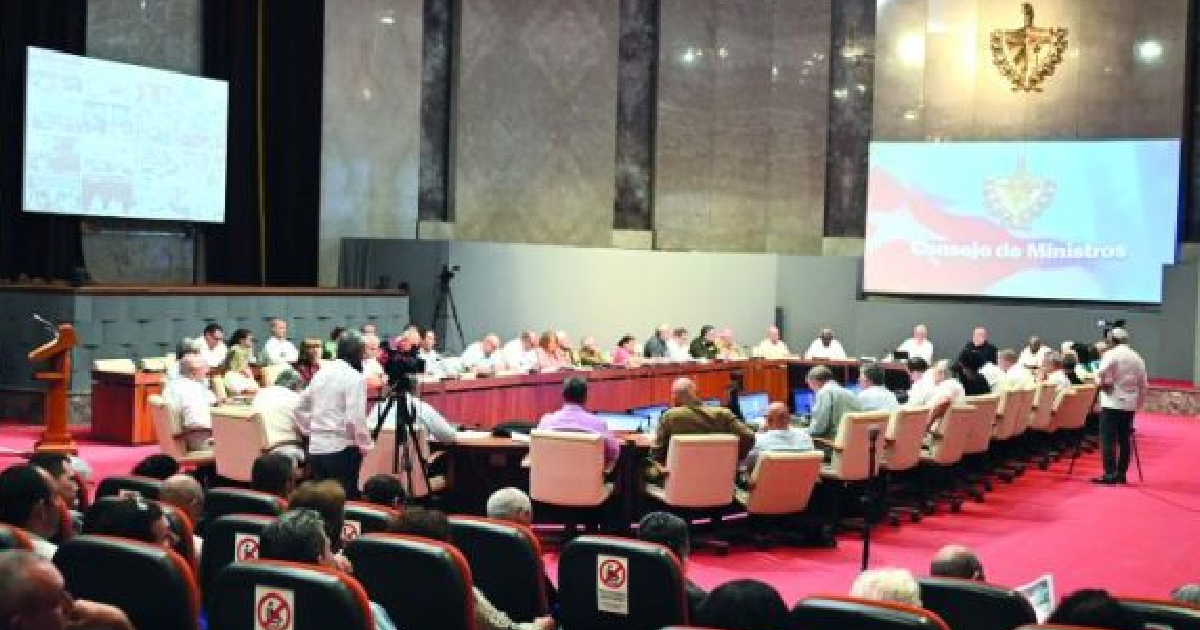
In a context marked by scarcity, shortages, popular discontent, and without an imminent improvement, the Council of Ministers of Cuba announced new measures in its attempt to "correct distortions and reinvigorate the economy during 2024".
They made this known in their recent meeting, which, according to official media outlets, monthly assesses the country's situation, with an emphasis on the economy.
The ruler Miguel Díaz-Canel Bermúdez, present at the meeting, regarding this issue and the measures that were already established by the Cuban government, "emphasized the need to work consciously, with commitment and with great control," as reported by the official media outlet Granma.
The new measures, explained in a convoluted way in the meeting report, are focused on "adjusting the 2024 Plan and Budget to the conditions of a 'war economy'," an idea that is more rooted in a belief and in the power assigned to the State than in a specific stage, according to economist Pedro Monreal.
While not eye-catching for the impact that the name may cause, a "war economy" implies prioritizing resources and efforts in essential and high-impact areas, which could increase efficiency in the use of limited resources. However, it could result in a reduction of investments in non-priority sectors, affecting their development in the medium and long term.
In addition, the government proposes "to reduce budget allocations with the aim of decreasing the fiscal deficit in 2024, starting from the unexecuted funds; establish requirements in the budgeted activity for the use of the approved Budget, and centralize the approval authority"; which implies restrictions on local governments, which may experience slowed decision-making and reduced flexibility for local actors to address specific and emerging needs.
Likewise, they intend to "allocate financial resources monthly in accordance with actual monthly income"; a measure that could create uncertainty and liquidity problems for projects and services that rely on regular and predictable allocations.
Another decision is to "calculate the tax impact of imports from non-state management forms; grant tariff benefits, including exemptions, for the import of raw materials and supplies for production, as well as conclude the tax system for electronic commerce."
They point out as other measures, "the establishment of a single, inclusive and equal price policy for all economic actors, which includes both the state sector and the non-state sector." A measure that, if not adjusted properly, could deepen the problem between supply and demand that exists today, increasing product scarcity.
Regulations will be implemented to limit profit margins on purchases of products and payments for services and supplies made by the state sector to the non-state sector; it will be necessary to promote linkages and not relinquish productive capacities; the process of preparing the Economy Plan and State Budget for 2025 will begin, based on the approval of the Global Model and Government Directives conceived for this process; as well as progress will be made in implementing an action plan to solve the existing issues in the banking process," they announced.
One risk in these measures is that it could discourage the participation of the non-state sector in transactions with the state sector if they are perceived as unprofitable. A challenge that the Cuban Government faces, as it has repeatedly demonstrated, and continues to demonstrate, the ineffectiveness of its policies.
The challenges of this implementation must be handled carefully to avoid negative effects on the population and key sectors of the economy.
According to the First Vice Minister of Economy and Planning, Mildrey Granadillo de la Torre, the measures have "an integral nature and stem from the complex situation existing in the economy."
He stressed that the actions have been focused on "advancing in the country's macroeconomic stabilization, a complex process that requires coordination and alignment among global economic organizations," with the objective of "improving planning mechanisms, relationships among economic actors, fundraising, eliminating tax evasion, and increasing production."
Cuban economist Pedro Monreal views these measures with suspicion. In a recent thread on X where he criticized the press report from Granma newspaper, he also pointed out that "there seems to be a kind of economic schizophrenia when speaking of 'centralizing' budget approval, of a 'unique' price policy, and more regulations, despite acknowledging problems of bureaucracy and 'inefficient' institutional control."
Monreal described the Council of Ministers as "a governing body mired in worn-out rhetoric, nebulous communication of results and actions, and an economic team seemingly perplexed by the country's macro destabilization".
What do you think?
SEE COMMENTS (1)Filed under: